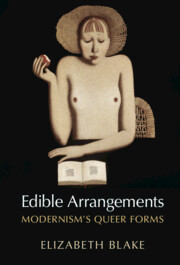Chapter 2 - Hunger and Lust
Obscenity in Joyce, Barnes, and Tagore
Published online by Cambridge University Press: 26 September 2023
Summary
Easily overlooked desires and pleasures are also central to the project of Chapter 2, which argues that literary obscenity can be constituted by suggestion and desire, rather than explicit sex. Beginning with the Ulysses trials, obscenity law has conflated obscenity with pornography and opposed it to literary value. By this logic, the category of obscenity contains only those works that employ direct and explicit depiction of certain body parts and actions to incite a prurient response, excluding work that mingles the erotic with the aesthetic, or operates via indirect means. Going against this scholarly and popular convention, this chapter recuperates the category of the obscene by centering appetite, rather than explicitness. Turning to the twin appetites, “Hunger and Lust,” that give the chapter its title, it locates obscenity in writing that allows transgressive or excessive desire to dictate its form, inviting readerly complicity and arousing readers’ own appetites. Juxtaposing texts by James Joyce, Djuna Barnes, and Rabindranath Tagore, this account of obscenity reminds us of literature’s power to unsettle our understanding of desire itself.
Keywords
- Type
- Chapter
- Information
- Edible ArrangementsModernism's Queer Forms, pp. 60 - 99Publisher: Cambridge University PressPrint publication year: 2023

